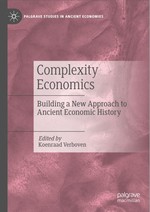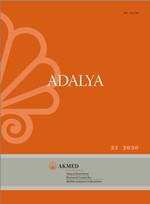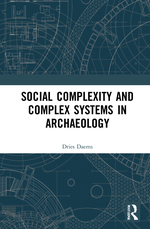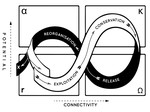Time Averaging
Quantitative analysis of the effects of time-averaging on archaeological networks using three different archaeological datasets. The results of our analysis indicate that time-averaging reduces the fidelity of network interpretations compared to the non-time-averaged networks when analyzing network or node properties. Our results also showed that the effects of time-averaging are highly dependent on initial network structures. This makes it difficult to establish general rules for how to interpret time-averaged networks in archaeology. However, our study shows that it is of paramount importance that archaeologists are aware of these biases and evaluate the reliability of their data accordingly.
SAGAscape
In this paper we present SAGAscape, an agent-based model of resource exploitation and subsistence strategies to explore the human impact of hilltop settlements on the natural environment in the study area of Sagalassos (southwest Turkey) during the Iron Age to Hellenistic period.
Synoikismos
In this paper we discuss the evidence of synoikismos as a driver for polis formation in southwest Anatolia and its potential role in the urban transformation of Sagalassos during the Hellenistic period.
Social Complexity and Complexity Economics. Studying Socio-economic Systems at Düzen Tepe and Sagalassos (SW Turkey).
Operationalizing the framework of complexity economics in archaeology through proxies of material culture production.
Review and roadmap of online learning platforms
This paper reviews a set of online learning platforms for the dissemination of digital archaeology.
Origin of Polis
This paper traces the origin and development of the polis as a political and urban phenomenon in southwest Anatolia, focusing on Lycia in a comparative approach with the neighbouring regions of Pisidia and Pamphylia.
Disentangling ecological and taphonomic signals in ancient food webs
This paper traces the impact of fossilization on inferences of ancient community structure and network topology.
Social Complexity and Complex Systems in Archaeology
Recent book about the study of social complexity using an approach built on complex systems thinking.
Adaptive cycles in archaeology. Indicators of change and stability in socio-economic systems.
Operationalising the application of adaptive cycles in archaeology.
Formal Modelling Approaches to Complexity Science. A Manifesto
This paper presents a ten-point manifesto that articulates arguments for the more common use in Roman Studies of perspectives, concepts and tools from the broader field of complexity sciences.
Building communities
In this paper, a model of community formation and organizational complexity is presented, focusing on the fundamental role of social interactions and information transmission for the development of complex social organisation.
The Hellenistic Pottery Repertoire made at Sagalassos.
Typological classification of the early and middle Hellenistic pottery assemblage from Sagalassos.
On Complex Archaeologies
This article surveys a number of approaches in complex systems thinking and their relevance for applications in the field of archaeology. The presented framework shows how structures of social organization and development of social complexity can be inferred from the archaeological record.












